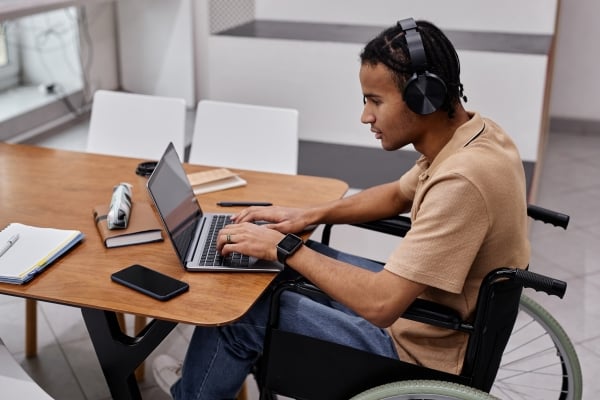In recent years, there has been a growing emphasis on creating accessible online courses for students with disabilities. As technology continues to play an increasingly important role in education, it is essential that all students, including those with disabilities, have equal access to online learning opportunities.
A recent report titled “Designing Online Courses for Students With Disabilities” highlights the importance of considering the needs of students with disabilities when designing online courses. The report discusses best practices for ensuring that online courses are accessible and inclusive for all students, regardless of their abilities.
One key finding from the report is the importance of using universal design principles when designing online courses. Universal design is the idea that products and environments should be designed to be usable by all people, regardless of their abilities. When it comes to online courses, this means designing courses in a way that is accessible to students with a wide range of disabilities, including visual, hearing, and motor impairments.
Some key recommendations from the report include providing alternative formats for course materials, such as audio descriptions for videos, captions for audio content, and text-based versions of visual content. Additionally, the report suggests providing multiple options for interacting with course content, such as keyboard shortcuts for students with motor impairments or screen reader compatibility for students with visual impairments.
Another important aspect of designing online courses for students with disabilities is ensuring that the learning management system (LMS) used to deliver the course is accessible. This includes making sure that the LMS is compatible with assistive technologies, such as screen readers and braille displays, and that it meets web accessibility standards.
Overall, the report underscores the importance of designing online courses with the needs of students with disabilities in mind. By following universal design principles and providing alternative formats for course materials, educators can create online courses that are accessible and inclusive for all students.
In conclusion, designing online courses for students with disabilities is an important aspect of promoting inclusive education. By following best practices and considering the unique needs of students with disabilities, educators can ensure that all students have equal access to online learning opportunities. It is essential that educators continue to prioritize accessibility in online course design to ensure that all students have the opportunity to succeed in their academic pursuits.



